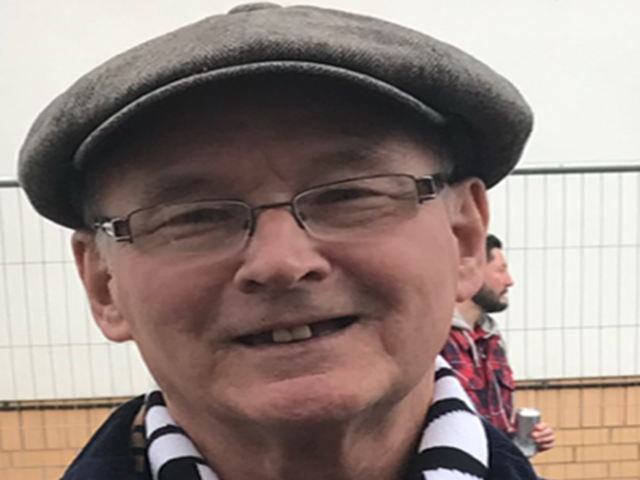
World Lymphoma Awareness Day: Study explores immune cell fitness to tailor “revolutionary” treatment
15 September
A study funded by Health and Care Research Wales has been exploring ways to improve treatment outcomes for patients with advanced blood cancer by enhancing their immune cells’ response to treatment.
Chimeric Antigen Receptor T-cell therapy (CAR-T) is an innovative new cancer therapy which harnesses the power of a patient’s immune cells to create a specific, individualised therapy.
The revolutionary immune treatment is successful in around 50% of advanced lymphoma patients but can come with some serious side effects. There is currently no way for doctors to predict which patients will be treated successfully.
The study, led by Cardiff University’s Dr Joanna Zabkiewicz and Dr Keith Wilson, Director of Blood and Bone Marrow Transplant Services at the University Hospital of Wales, Cardiff, investigated how “fit” a patient’s immune cells were before and during CAR-T treatment, to determine how effectively they would be able to fight cancer cells. Dr Zabkiewicz said,
A growing number of patients with aggressive lymphoma are being offered CAR-T therapy each year. Whilst the results can be truly remarkable with about 50% of patients cured by this therapy, there are some significant toxicities involved. Some patients need intensive care and many others report chronic ongoing symptoms like forgetfulness and brain fog, even once their cancer is cured. As with any personalised therapy, it is also highly expensive.
“We urgently need to understand why some patients respond well to CAR-T and why some don’t, and whether we could better tailor treatment to individual patients as well as improve quality of life for all.”
Patients donated immune cells as part of the study while they were being harvested to manufacture the cell therapy, and put them through a variety of tests to assess their cancer-fighting fitness. Once CAR-T was administered, blood samples were taken to assess the cells’ effectiveness once infused back into the body.
Dr Zabkiewicz continued, “CAR-T is offered following a number of other treatment rounds, meaning T-cells can be exhausted by that time. We tested a range of factors, such as how well the cells migrated, became activated and divided, to see how fit they were for therapy. We wanted to establish whether patient cells where impacted by the many rounds of prior treatment and found that it may be beneficial to preserve patient cells upfront, before they have any chemotherapy, in case they are needed further down the line.”
Keith Thomas, 74, from Blaenau Gwent had CAR-T treatment in 2020 and was involved in shaping the study. Keith said: “A couple of years ago there would there was no hope for me, but now I have every hope. I look forward to seeing my grandchildren grow older. I wouldn't have had that without the wonderful treatment and will be forever grateful.”
Dr Zabkiewicz continued, “Our patient representatives’ experience was invaluable in considering patient burden, quality of life and sample timing, particularly our highly-respected lay colleague Sue Campbell, who sadly passed away earlier this year but made such a vital difference to the many studies she contributed.”
The study team are also working on a new version of CAR-T therapy which could enable it to be applied to other types of cancer. Dr Zabkiewicz continued, “If we can improve the ability for a CAR-T cell to find its target in blood cancer, we could tailor that combination to different tissues around the body. This “enhanced” CAR-T could also be applied in a solid cancer setting bringing new treatment options to so many more cancer patients.”